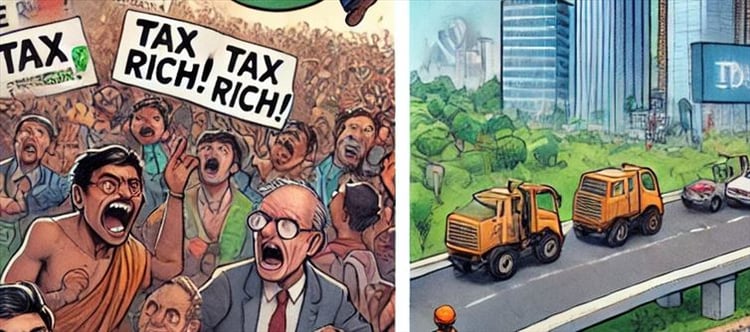
Reportedly in the next five years, the demand for agricultural workers and drivers will increase rapidly and these sectors will be included in the fast growing jobs. At the same time, the roles of cashiers and ticket clerks will decrease. This has been said in the report of a new study released on Wednesday. The World Economic Forum (WEF) also said in the 'Future job Report-2025' that 17 crore new jobs will be created by 2030, while 9.2 crore jobs may be lost, that is, net 7.8 crore new jobs will be created.
Perhaps the report released a few days before the annual meeting of the World Economic Forum to be held in Davos, switzerland from 20 to 25 january also said that with the arrival of new technologies, there is a possibility of widespread change in jobs by 2030. Apart from progress in the technology sector, population changes, geo-economic tensions and economic pressure are the reasons for this. This is reshaping industries and professions around the world. The study, based on data from more than 1,000 companies, found that the skills gap remains the most important barrier to business change even today. About 40 percent of the skills required for a job are set to change. 63 percent of employers are already citing this as a major obstacle they face.
The demand for technology skills in artificial intelligence, big data and cybersecurity is expected to increase rapidly. But human skills such as creative thinking, strength, flexibility will remain important. A combination of both technology and human skills will be important in a rapidly changing job market. Jobs will grow by 2030 in roles related to essential services and in areas considered essential such as care and education. While advances in AI (artificial intelligence) and renewable energy are reshaping the market. This is increasing the demand for many technology or specialist roles, while the demand for other jobs such as graphics designers is declining. Till Leopold, head of work, wages and job creation at the World Economic Forum, said, "Trends such as generative AI and rapid technological change are impacting industries and labor markets. This is creating both enormous opportunities and serious risks." Sectors such as agricultural workers, delivery drivers and construction workers are expected to see a significant increase in employment by 2030.




 click and follow Indiaherald WhatsApp channel
click and follow Indiaherald WhatsApp channel